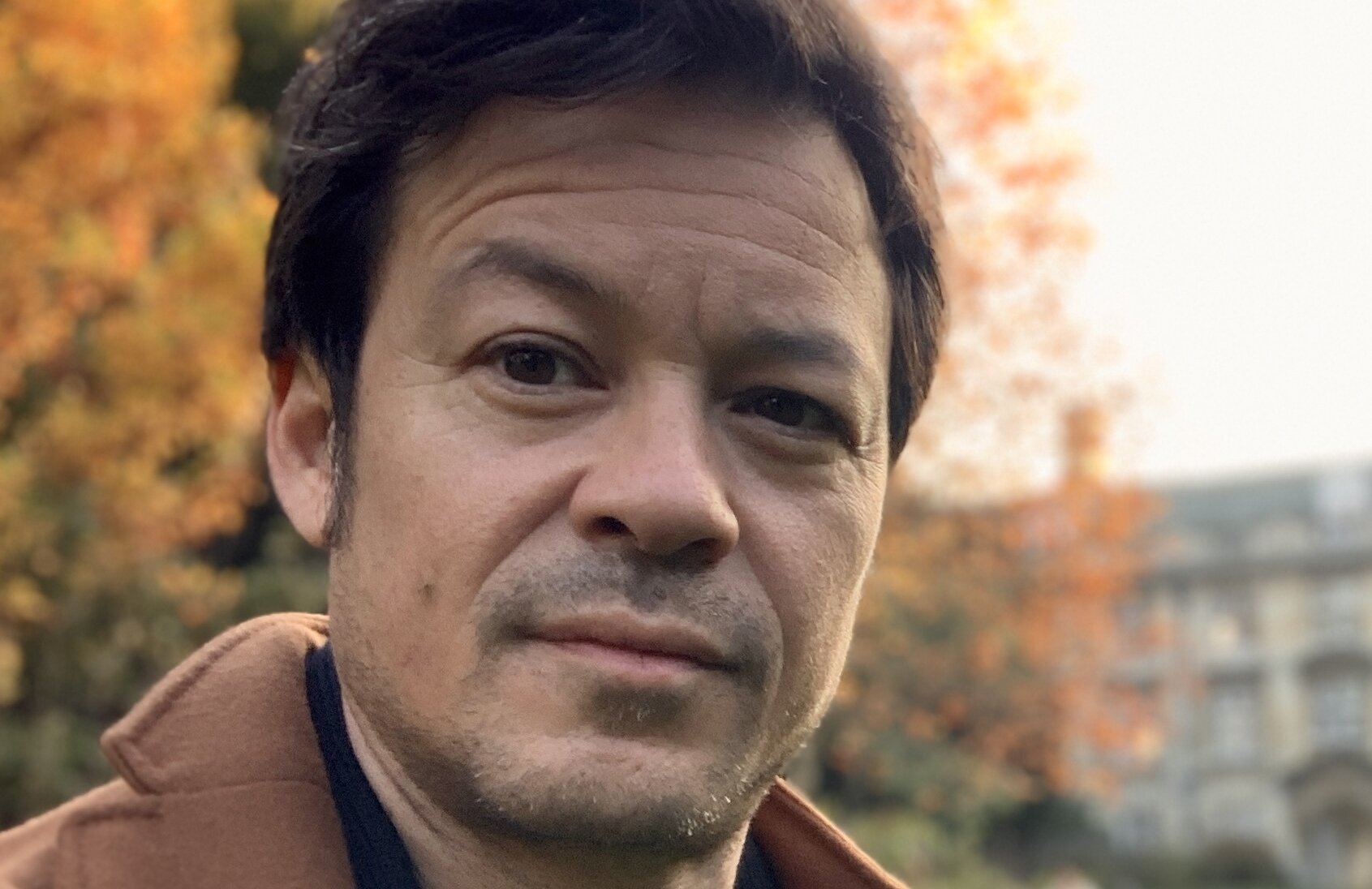
Poet Jaya Savige talks about how the years since he left Cambridge have been characterised by profound change on every front
Gates Cambridge gave me the opportunity to interact with brilliant minds and to hear and absorb the fire burning inside them. That was life-changing.
Jaya Savige
The world has always been in flux, but the last decades, particularly the recent one, have been ones of rapid, often violent, transformation on many fronts. For Jaya Savige [2008] the last 11 years since leaving Cambridge have been characterised by profound change on both the personal and professional front.
He has captured all of that in his writing while experimenting with poetic innovation and change, with his most recent book of poems, Change Machine, being named one of the ‘Best Australian Books of the 21st Century’ by experts in The Conversation this August. Sarah Holland-Batt, Professor of Creative Writing and Literary Studies at Queensland University of Technology called it “a standout in this new century of Australian poetry” for the way “it exhilarates intellectually and at the level of the line, has style to burn, and breaks genuinely new ground in its astonishing invention of anagrammatic rhyme”. She says its influence “is likely to be lasting, and profound”.
Fellow Australian poet John Kinsella states: “It tunes and detunes; it gives new locutions to experiencing the static and detritus of late modernity; it reinvents wheels within wheels to upset conversations between centres and peripheries. Vitally, it disputes colonial usurpings of language by breaking them down and playing them back in confronting, ironic, and liberated ways. A work of genius in the humanistic sense, but also in the sense of ‘begetting’ – Savige makes new with every poem.”
The book was published in 2020 with the poems being written over a period of time, mainly since 2014, and brought together in one volume. Jaya’s previous book of poetry, Surface to Air, was published nine years earlier, mid-PhD. His pamphlet of 2014, Maze Bright, was in part inspired by conversations with scientist-friends he met via Gates Cambridge. “Those conversations affected my art and my sense of what is possible in poetry,” he says.
Forging new paths in teaching
Before he submitted his PhD thesis on risk in the works of James Joyce, Jaya was offered a lecturing job in the English faculty at the New College of the Humanities, the private institution set up by philosopher AC Grayling, and moved from one of the UK’s oldest institutions to its newest in 2013. There was huge opportunity there.
Jaya was at the centre of shaping the curriculum and meeting the regulatory requirements of a new type of creative writing degree, one which was popular as a minor with students doing a whole range of other degrees, from politics to economics. He refers to that period as one of ‘permanent revolution’ as the college evolved, innovated, changed its degree structures with new partnerships and pivoted online during Covid.
At the same time Jaya was grappling with personal challenges as he and his partner tried to start a family. They endured multiple pregnancy losses before their son Xavier was born in 2018. There are poems in Change Machine that cover that challenging period, including one giving Jaya’s perspective on the IVF process and other aspects of ‘reproduction in the 21st century’.
Back to full-time writing and editing
In 2021, after the publication of Change Machine, which has received a number of prestigious award citations and plaudits, he decided to move back to full-time writing and editing. He says he loved teaching and shaping the writers of tomorrow and working with the finest literary academic minds. He looks back fondly on that phase of his career, but he had the writing itch and he needed to scratch it.
Jaya now has a top literary agent, Peter Straus, and is working on an ambitious project on the history of poetry across all cultures and eras. “I had the opportunity to work with some of the finest academic minds in the literary field and now I have the experience of working with the industry’s finest minds. Having the experience of both is intensely fulfilling,” he says. In part his decision to change career tracks comes back to his PhD, which was about the development of risk societies in literature. He states: “The question I had was: was I going to take the risk of pursuing the thing I most love.”
Amid all the turbulence of the last decade, however, there have been some constants. One mainstay of Jaya’s time at Cambridge and beyond has been his long-time position as poetry editor of The Australian. He has been a judge on some of the most prestigious literary prizes and has become a regular writer for publications such as the Times Literary Supplement. He has also contributed the final two chapters to the forthcoming Cambridge History of Australian Poetry.
Adapting to change
Jaya talks about how fulfilling his career has been and how he has come quite a long way for the son of a single mum from a working class family in Australia, paying tribute to his late mum who was only 19 when she had him and who played such a crucial part in encouraging her children’s education. She died at the age of just 42 and would surely have been so proud to see all that Jaya has achieved.
Change occurs on many levels, from the physical to the intellectual, and it is not just the change itself, but the way you adapt to it and take it forward that matters. For Jaya, Cambridge was an important time of change for him intellectually, with the Gates Cambridge community playing a vital role. He looks back on that time with a lot of affection. “That international and interdisciplinary experience was so important,” he says. “The opportunity to interact with brilliant minds and to hear and absorb the fire burning inside them was life-changing.”












